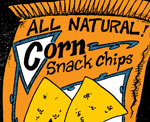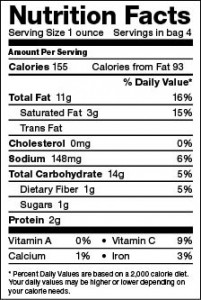Have you noticed all those foods these days that have the word “Natural” or “All Natural” on their labels. To be honest, the word “Natural” and/or “All Natural” don’t really mean much when compared to other food label claims like “Healthy”, “ Low in Saturated Fat”, “Good Source”, “100% Whole Wheat” and others. In America, labels like these are tied to legal definitions. For example, to say “zero trans fats” the food, by law, must contain less than ½ gram per serving. Foods that have more than this cannot say “zero trans fats”.
Truth be told, there no legal definition of the word natural foods or all natural foods. That doesn’t mean that the food is bad or that somebody is trying to bamboozle you.  Rather it’s just capitalism, which is one of the foundations of the American democracy. But you have to be cautious when you see natural or all natural because anybody can list it on a food label. My rule of thumb is that when I see a food touted as natural I wonder if that was all they could say. In other words, are they saying the food is natural because there was nothing else good they could legally say about the food.
Rather it’s just capitalism, which is one of the foundations of the American democracy. But you have to be cautious when you see natural or all natural because anybody can list it on a food label. My rule of thumb is that when I see a food touted as natural I wonder if that was all they could say. In other words, are they saying the food is natural because there was nothing else good they could legally say about the food.
Look Beyond The Label
When I see the natural claim being made on a food label, I always look to see what else the label tells me. For example, I like to check out the Daily Values – those percentages that are on the right side of the food label. An easy tip for reading the Daily Values is to remember that:
20% or more means it is high in that nutrient
and
5% or less means it’s low in that nutrient
So, if I see 20% or more (or even close to 20%) next to saturated fat, I avoid that food. If I see 20% or more next to something good (like calcium for example), that’s something I might purchase. In the picture to the right you see that the food (whatever it is) has a Daily Value of 16% total fat. That's high in my book. But it's also giving you 15% of your Daily Value for your saturated fat! Wow! It's almost high in saturated fat too! Probably not a food you want to eat a lot of.
Now that you know this trick you won't fall for All Natural ever again. So go check what’s in your kitchen and see how good of a shopper you are!
Jerry thanks I apprecaite the feedback 🙂
Very true! Makes a change to see someone spell it out like that. 🙂